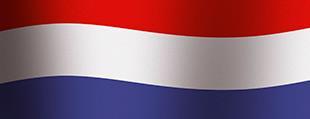Know your waffle from your cookie and your aardvark from your wildebeest with Tim Bowen’s guide to English words from the Dutch language.

Numerous English words are related to Dutch as a result of the two languages sharing a common Germanic origin. This can make it quite difficult to say with certainty whether a word entered English directly from Dutch or whether it shared a common root and developed simultaneously in both languages. However, there are a number of words that most philologists agree have their origins in Dutch.
There are several examples associated with the sea and sailing, notably yacht, skipper and freight.
As with words from many other languages, the field of food and drink is a rich source of loan words. Among those which appear to have come from Dutch are gin (from jenever, the Dutch word for the juniper plant which gives gin its distinctive flavour), waffle (from wafel), coleslaw (from Dutch words literally meaning ‘cabbage salad’), cookie (once mainly used in American English but now a feature of British English too and derived from the Dutch word koekje meaning ‘little cake’) and the slang term in British English for alcoholic drinks in general, booze (from the Dutch verb búsen meaning ‘to drink a lot of alcohol’).
Just as Britain’s colonial past brought numerous words from around the world into the language, Dutch colonies in southern Africa have given us various words that originated in Afrikaans (the version of Dutch spoken in South Africa), notably aardvark (‘earth pig’), wildebeest, trek, spoor and, from the days of enforced racial division and discrimination in South Africa, the term apartheid, which literally means ‘separateness’.
Teaching tip: ask learners to use a search engine to find the numbers one to ten in Dutch and say which of them look most like their English equivalents (probably een, twee, zeven and tien).



No comments yet